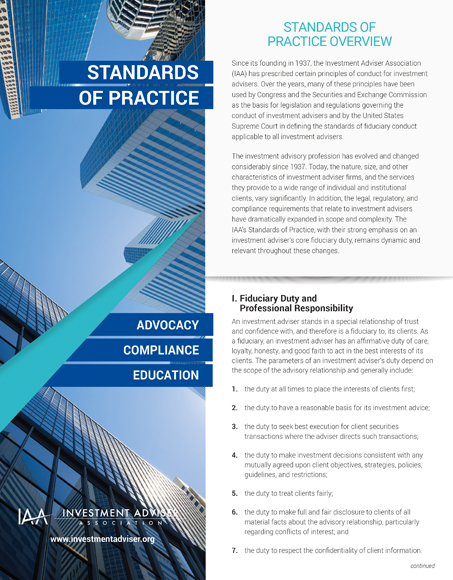IAA Standards of Practice & Fiduciary Duty
Since its founding in 1937, the Investment Adviser Association has prescribed certain principles of conduct for investment advisers. Over the years, many of these principles have been used by Congress and the Securities and Exchange Commission as the basis for legislation and regulations governing the conduct of investment advisers and by the United States Supreme Court in defining the standards of fiduciary conduct applicable to all investment advisers.



